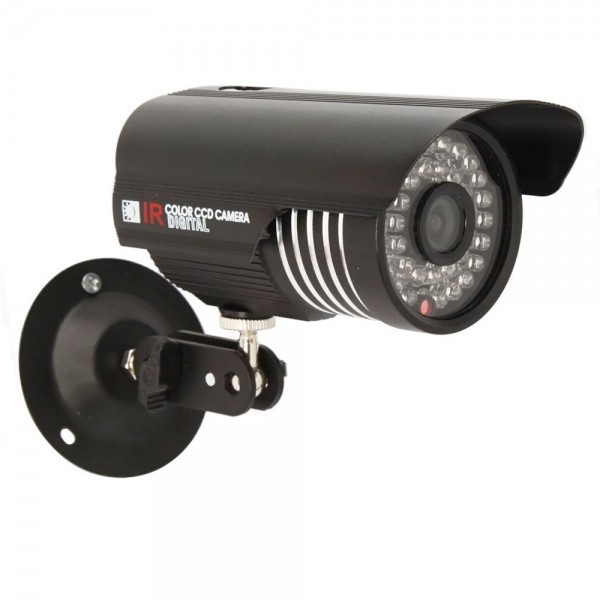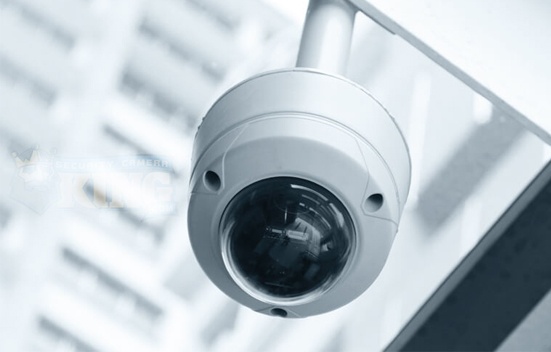A Common Sense Guide to
Buying Security System Cameras
 Today’s security market is going crazy! People are scrambling to protect themselves, their families, possessions, businesses, etc. The economy has created a whole new wave of crime and out of control is only the start of the description of what’s going wrong. This craze has in turn created a new type, style, and breed of consumer. Oblivious, and its not their fault. Most retailers confuse the average guy or girl so badly that “up” isn’t even a direction anymore. Well, I’m going to sort all of that out for you. By the time you’ve gotten through this brief read, you’ll be armed to the teeth with information that your average reseller isn’t even going to have. Let’s get into it!
Today’s security market is going crazy! People are scrambling to protect themselves, their families, possessions, businesses, etc. The economy has created a whole new wave of crime and out of control is only the start of the description of what’s going wrong. This craze has in turn created a new type, style, and breed of consumer. Oblivious, and its not their fault. Most retailers confuse the average guy or girl so badly that “up” isn’t even a direction anymore. Well, I’m going to sort all of that out for you. By the time you’ve gotten through this brief read, you’ll be armed to the teeth with information that your average reseller isn’t even going to have. Let’s get into it!
First things first: TVL… Television lines… The grandaddy of bull. I always hear people talking about it. “My cam has 500TVL” “My cam has 700TVL” “My cam has 1,583,295TVL” blah blah blah…. Who cares? Ya, that’s right… LA DI DA…. six bazillion TVL…. Who freakin cares? What’s a TVL? Why do you even care? NO… IT IS NOT REALLY RELEVANT. Just stop… Recorders can’t take advantage of ANYTHING over 480TVL. That’s right 480… you’re neighbor who’s clamouring over his brand new $8,000 1.65 gazillion TVL cams; he’s an idiot (and has probably been raked over the coals by a security company looking to make a quick buck). Only until recently, most recorders couldn’t even record over 240TVL. 480! That’s your magic #. Anything over that, means NADA. The only exception is High Definition, and they don’t measure that in TVL.
So now that I’ve pooped on your parade route about what you THOUGHT was important, let me bring you up to speed on what is ACTUALLY important: Chips, lenses, housings, illumination, features, and control. These factors are what you need to be paying attention to. This difference between cameras is great. Not simple. To decide what camera is best for you, you must first understand what you expect of the camera. Do a thorough survey of each of your camera’s potential location on your site. Know what you expect for the cam, and then start your research. Also understand that cameras DO NOT work miracles. If your recorder sucks… No camera in the world will make it better. In addition to that; cameras do NOT increase your recorded resolution. If you like the way your picture looks when its small, and you hate the way it looks when you go full screen… DO NOT waste your money upgrading your cameras. That is your recorder that you’re not happy with. On the other hand: If you’re not crazy about something in the image no matter how big or small (blurry, unclear, fuzzy, too dark, too bright, wrong colors, glare, etc etc etc), then you are looking at new cameras to make it better. I call it “test your resolution”. This small intelligent test could save you from blowing some major cash.
So now you’ve decided that you need to upgrade your cams, or perhaps its a completely new install and you want to make sure you buy the right thing. Where do you start? For me, its the physical requirements. Are you mounting to a wall? A soffit? A Pole? Having the most awesome dome cameras does you no good at all if they are blocked by a fascia board or you have to crank them to a perfect ninety degrees and get Infrared reflection in the view from it. Housings do make a difference, but its completely from the install point of view. Choose a camera design that works with your application first. Then you can worry about everything else.
Once you have a housing and mount style in mind, you can then begin to consider what it is that you need, and the quality levels you are willing to pay for. Yes, that makes a difference. Lets get real here. I’m always hearing someone tell me that they want to capture a license plate on a moving car from 50 feet away, but they only want to spend $1000. Get real people. You buying a multi-camera system. You want it to produce CSI like results for under the price of one cameras they used to shoot the program. Not to mention, not even those cameras do that. If you’re shooting a long wide area, and you want to be able to zoom in on the pic, be prepared to spend some cash. You need a high resolution camera (megapixel) with amazing clarity and shutter speeds. If you’re not prepared to spend thousands on your system then don’t even bother thinking that way. That kind of technology exists, but its expensive.
If you want anything more than an overview camera to see what’s going on in a area, your best bet is to talk to someone that knows how to get it done. You could fiddle faddle around guessing and adjusting and buying dozens of cameras trying to get it right, or you could just talk to someone that knows. Yes, learning about cameras DOES help… But until you get the thing into your hands and play with it, you’ll never really know. Every company claims their product is the best. Get on the line with them and ask them why. If they seem like they’re mumble-bumbling and spewing vague bullcrap, they probably aren’t qualified to help you. Its the guy that actually says something like “we use only the top components in our equipment” and can name what that is and why its so awesome that you want to talk to.
If you’re still bent on doing it yourself, here are a few factors that will actually make a difference: Super WDR/True WDR (or 3DNR, or DWDR, in that order important), Super ATR (or standard ATR), megapixel lenses (which are relative to clarity, not image resolution), warranty length, infrared distance, motorized mounts, user-controlled on screen display, white balance, shutter speed adjustment, lowlight enhancements, headlight compensation, etc. Features and capabilities are what make a high end camera worth it, not resolution (or TVL). The trick is to understand what you expect the camera to do, and find one with the features that will enhance the situation. Its fairly obvious that headlight compensation is not going to be very useful in a basement cam, nor will wide dynamic range glare resistance outdoors overviewing a field.
In essence, if you just look past “the easy route” and do a little research into what you are buying, and the individual features of the camera, you should really be able to do a fantastic job finding the right cameras for your situation. Spending time learning the equipment will pay off big. Finding self help videos is also a great way to see what a product is all about. Remember to test a salesman for the basics before taking his word on the advanced, and if they really know the product don’t be afraid to take their advice. They most likely know it better than you do. A good salesman will be more than glad to let you know when you’re over buying, and that’s critical. If you’re going to spend money on something you don’t need, chances are there’s something you DO need that you aren’t spending on. The perfect camera system is a balanced camera system.

